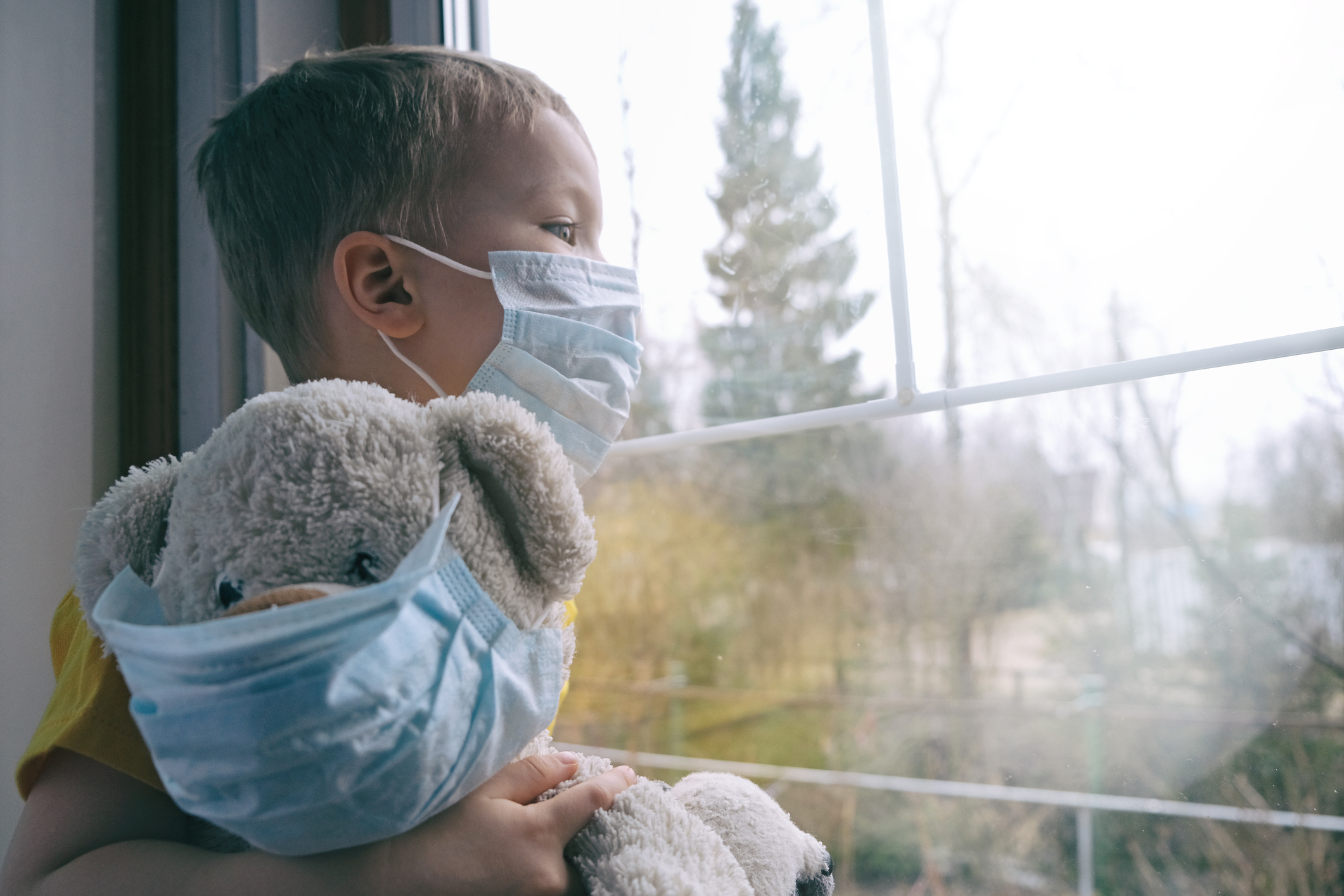Children need help dealing with tragedy. The COVID-19 pandemic made this clear. Kids were told to stay away from school, friends, and elderly family members for months. Stress, anxiety, and fear build up in children when tragedy arises, whether by pandemic, the death of a loved one, or the breaking up of a home. How should we respond to these things? Parents have the opportunity and responsibility to teach their children how to think about and react to these events as well as cope with the feelings and confusion they may be experiencing.
It’s up to a parent to frame world events like war and natural disasters. Teachable moments reveal themselves during times of crisis. That doesn’t mean parents should preach or lecture. It means you ask questions and carefully share information that can guide your children to right thinking. So what do you say? How do you respond to their questions? How do you draw them out? What kinds of things can you do that will help your children during this time?
First, be sensitive to your child’s emotions.
All children are different and will process these events in different ways. Some will openly cry or make angry threats. Others will act out or become more aggressive. Some will become very quiet and withdrawn. Teens may become glib or sarcastic.
Validate feelings.
It’s okay to experience emotions but it’s not okay to act those emotions out in hurtful ways. By validating a child’s feelings you are “grieving with those who grieve.” Be careful about criticizing your children’s emotions. Thoroughly working through difficult experiences in a complete way will help your children fully deal with the events and their emotions and even grow through this experience.
Remember that trials provide opportunities to grow.
Romans 5:3-4 says, “We know that suffering produces perseverance; perseverance, character; and character, hope.” The things you say and the way you teach your children in times of tragedy can help build character and develop hope. Furthermore, you can help your children grow during tough times and give them the tools to deal with life as they grow older. Take the time to talk about the events and talk about responses.
The things you say and the way you teach your children in times of tragedy can help build character and develop hope. Click To TweetContinue regular routines.
Routines provide security, and many children need that security in order to process difficult things effectively. Although you’ll continue the schedule and maintain the agenda, that doesn’t mean that you ignore the issues. Take time to talk and discuss what’s happening. Your children need a sense that they have somewhere safe to go to process what’s happening in life.
Limit TV viewing.
Some parents believe that they should encourage their children to watch coverage of traumatic events because of their historical value. Although being informed can be helpful, the continual display of destruction and violence can do more damage than good. Because of the way visuals plant bookmarks in our brains, this could prove to be a counterproductive strategy.
Many parents who wouldn’t let their children watch a violent movie will allow them to see the same kinds of things on the news over and over again. This can feed negative emotions and hinder a child’s ability to process what’s happened. Video of children escaping their campus after a school shooting occured could send young minds racing, wondering if this would happen to their classmates. Young children think concretely, and when they see the same thing over and over again, they may believe that the event is continuing to happen over and over again. Even adults experience the same emotions when they see the event repeated.
Be sensitive to developmental stages and a child’s unique personality.
Somewhere around the age of 6-9 years old, a child will usually develop the ability to understand concepts like terrorism, death, or patriotism. At 10-12 years old, children begin to understand those abstract ideas in very personal ways. The 11-year-old may now realize the permanency of death and the significant value of patriotism to them personally. Teens are choosing values to live by and hunt for them in life. They often want things clear-cut, and may challenge those who might disagree with them. Some children withdraw, while others speak out. Some may joke about things inappropriately. As you talk to your children, take all these things into account. Share with them on their level, giving them as much information as they need or want. Trying to protect children from tragedy by not talking about it can produce more fear as they sense something is wrong. Also, be careful about overdosing a child with too much information. Your sensitivity here will provide tremendous opportunities to help your children understand and deal with these events properly.
Model right thinking with your children.
Many parents are modeling revenge, worry, and panic. The way you respond to trying events may teach more than your words do. Don’t be afraid to be vulnerable with your kids and talk about how you, as a family, are experiencing and learning from these tragic events.
Look for proactive ways to be involved in the solution, not just talk about the problem.
Adopt a soldier, take food to those in need, and create a care package for those who are hurting. These are a few examples of ways to help your children help and care for others.
Take time to ask your children how they are doing. Come back several hours after a significant conversation and say things like, “I wondered if you had any other thoughts about what we talked about earlier.” As you work through these things with your children, you are giving them a gift. You are helping them understand life. You will contribute to your child’s future well-being and their ability to process other tragedies in helpful ways.
How did you handle the last crisis with your children and what would you likely do differently next time?
Dr. Scott Turansky is an author and speaker known for his heartfelt parenting approach. He offers moms practical, real-life advice for many of parenting’s greatest challenges and is the founder of the National Center for Biblical Parenting.










